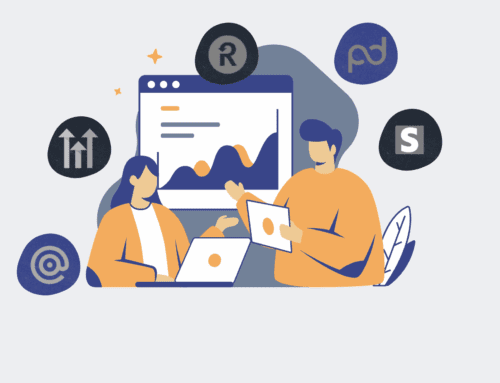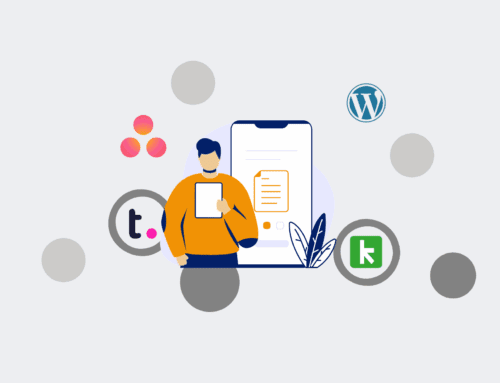The AI Revolution in Hiring: Embracing Skill-Based Talent Acquisition
For decades, the hiring process has been largely dependent on a time-honored but often flawed ritual: the resume. These documents, snapshots of past experiences and qualifications, have served as the gatekeepers to opportunity. Yet, any business leader knows the gnawing frustration of sifting through hundreds of resumes, only to find a handful of truly suitable candidates. The reality is, traditional resume screening, with its reliance on keyword matching and historical job titles, frequently overlooks genuine talent and perpetuates unconscious biases. In today’s dynamic market, where skills evolve faster than job descriptions, this outdated approach is not just inefficient—it’s a barrier to building a high-performing, agile workforce.
Beyond Keywords: The Pitfalls of Traditional Resume Screening
The conventional wisdom of recruitment often dictates that a candidate’s suitability can be determined by matching keywords from their resume against a job description. While this method offers a semblance of order to a chaotic process, it’s fundamentally limited. It prioritizes what a candidate has done over what they are capable of doing, leading to a focus on pedigree rather than potential. This often results in a narrow talent pool, as perfectly capable individuals from non-traditional backgrounds or those who simply didn’t use the ‘right’ keywords are filtered out. We’ve seen firsthand how this approach can lead to prolonged hiring cycles, missed opportunities, and ultimately, a less diverse and less innovative team. It’s a system designed for a different era, ill-equipped to identify the nuanced competencies required for success in the age of rapid technological change.
AI Resume Analysis: Unlocking True Potential and Skills
Enter Artificial Intelligence. AI resume analysis isn’t about replacing human judgment; it’s about augmenting it with unparalleled data processing capabilities. Far from being a mere keyword scanner, advanced AI platforms can parse and understand the context, depth, and relevance of a candidate’s experience. They can identify transferable skills, gauge proficiency levels, and even predict potential based on project contributions and learning trajectories, rather than just job titles. This sophisticated analysis moves beyond surface-level information to uncover the underlying capabilities that truly matter. For example, an AI can recognize that managing a complex volunteer project requires the same leadership and organizational skills as a paid program management role, something a human screener, pressured by time, might easily miss. This shift is profound: it moves the focus from what someone ‘has been’ to what they ‘can do.’
How AI Moves Beyond the Superficial
Modern AI resume analysis leverages natural language processing (NLP) and machine learning to interpret textual data. Instead of just looking for exact keyword matches, it understands synonyms, related concepts, and even the sentiment or complexity of descriptions. This allows it to:
- **Deconstruct Experience:** Break down past roles into core skills, responsibilities, and achievements.
- **Identify Transferable Skills:** Recognize how skills gained in one industry or role are applicable to another.
- **Reduce Bias:** By focusing solely on skills and objective performance indicators, AI can significantly diminish the impact of unconscious biases related to names, gender, age, or educational institutions that often plague human screening.
The Strategic Advantages of Skill-Based Hiring
The transition to skill-based hiring, powered by AI, offers compelling strategic advantages for businesses. It’s not just about filling a role; it’s about building a future-proof workforce that is adaptable, innovative, and reflective of a broader talent landscape.
Mitigating Bias and Amplifying Diversity
One of the most critical benefits of AI-powered skill-based hiring is its potential to dismantle hiring bias. Traditional methods, consciously or unconsciously, often favor candidates who fit a certain mold. AI, when properly configured, evaluates candidates based on objective skill sets, fostering a more equitable and inclusive hiring process. This leads to a more diverse workforce, which is directly linked to increased innovation, better problem-solving, and improved financial performance.
Precision Matching for Optimal Performance
When you hire for skills, you’re hiring for performance. AI can identify candidates whose capabilities precisely match the specific demands of a role, often uncovering hidden gems that traditional methods would overlook. This precision matching results in higher retention rates, faster onboarding, and significantly improved team productivity. We’ve seen clients transform their talent acquisition simply by shifting their focus from credentials to demonstrable capabilities, leading to more impactful hires.
Implementing the Future: How 4Spot Consulting Powers This Shift
Embracing skill-based hiring powered by AI resume analysis isn’t merely about adopting new software; it’s a strategic overhaul of your talent acquisition framework. This is where 4Spot Consulting excels. We don’t just recommend tools; we design and implement integrated automation and AI solutions that align with your business objectives.
From Strategy to Execution: The OpsMap™ and OpsBuild™ Advantage
Our approach begins with the OpsMap™—a strategic audit that uncovers inefficiencies in your current hiring processes and identifies prime opportunities for AI integration. Following this, our OpsBuild™ framework implements tailored solutions, often leveraging platforms like Make.com, to connect disparate systems and embed AI capabilities directly into your workflow. This includes automating resume intake, intelligent parsing, skill extraction, and seamless integration with your CRM (like Keap) or ATS. We ensure that the AI isn’t just a black box; it’s a transparent, explainable component that enhances human decision-making, allowing your HR and recruiting teams to focus on strategic engagement rather than manual, repetitive tasks.
Real-World Impact: Driving Efficiency and ROI
The tangible benefits of this approach are significant. We recently helped an HR tech client save over 150 hours per month by automating their resume intake and parsing process using Make.com and AI enrichment, then syncing this invaluable data to their Keap CRM. This wasn’t just about saving time; it was about transforming their capacity to engage with the right talent faster and more effectively, turning a bottleneck into a competitive advantage. This kind of outcome is precisely what we aim for: clear, measurable ROI that impacts your bottom line and scalability.
The rise of skill-based hiring, supercharged by AI resume analysis, is more than a trend; it’s the intelligent evolution of talent acquisition. Businesses that embrace this shift will not only gain a competitive edge in attracting top talent but also build more resilient, innovative, and diverse teams ready for the challenges of tomorrow.
If you would like to read more, we recommend this article: The Intelligent Evolution of Talent Acquisition: Mastering AI & Automation









